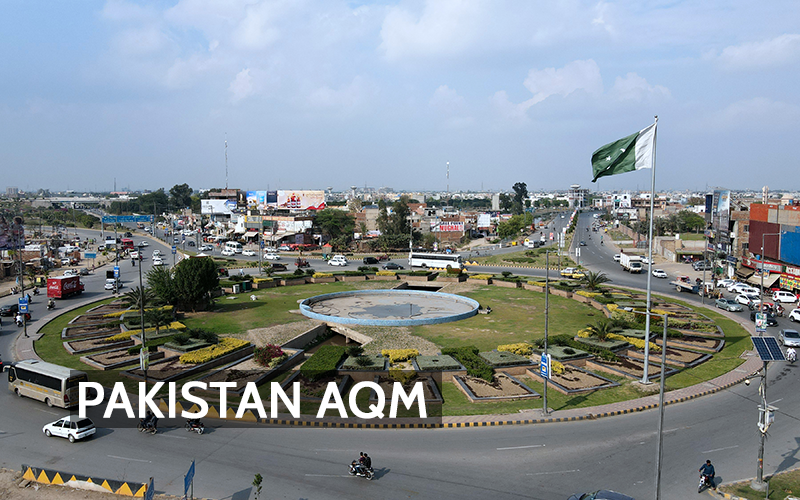Air quality in Pakistan has deteriorated significantly over recent decades, posing severe health risks and environmental challenges. In response, the Pakistani government has implemented regulations to monitor and improve air quality. This article examines existing air quality regulations in Pakistan, their inception and implementation, and prospects for future regulatory measures.
Existing Air Quality Regulations in Pakistan
The cornerstone of Pakistan’s environmental legislation is the Pakistan Environmental Protection Act (PEPA) of 1997. This act established the Pakistan Environmental Protection Agency (Pak-EPA) and authorized the creation of the National Environmental Quality Standards (NEQS), which set permissible limits for pollutants in air, water, and soil. The NEQS for ambient air were first introduced in 2010, specifying concentration limits for pollutants such as particulate matter (PM10 and PM2.5), sulfur dioxide (SO₂), nitrogen oxides (NOx), carbon monoxide (CO), ozone (O₃), and lead1.
In March 2023, the Ministry of Climate Change introduced the National Clean Air Policy (NCAP) to provide a comprehensive framework for improving air quality across the country. The NCAP emphasizes the roles of provincial authorities in implementing measures tailored to their specific needs and focuses on key sectors contributing to air pollution, including transport, industry, agriculture, waste management, and residential areas. Priority interventions outlined in the NCAP include implementing Euro-5 and Euro-6 fuel quality standards, enforcing industrial emission standards, preventing the burning of agricultural residues, curbing open burning of municipal solid waste, and promoting low-emission cooking technologies2.
Inception and Implementation of Regulations
The establishment of PEPA in 1997 marked a significant step toward structured environmental governance in Pakistan. This act laid the groundwork for subsequent regulations, including the formulation of NEQS. The NEQS for ambient air, introduced in 2010, provided specific targets for air quality management. However, enforcement has been inconsistent due to limited resources, insufficient monitoring infrastructure, and overlapping jurisdictional responsibilities.
The NCAP of 2023 represents a more integrated approach, developed through consultations with stakeholders nationwide, including provincial governments, civil society, academia, and the private sector. This collaborative process aimed to ensure that the policy addresses diverse regional challenges and promotes cohesive action across different administrative levels2.
Challenges in Implementation
Despite these regulatory frameworks, Pakistan faces significant challenges in effectively managing air quality. A 2023 review by the Centre for Research on Energy and Clean Air (CREA) highlighted several shortcomings in the NCAP, such as relaxed air quality standards, lack of emphasis on emission load reduction, oversight of transboundary pollution issues, and insufficient legal backing. The absence of stringent legal support at the federal level allows provincial policies to diverge, potentially weakening overall targets3.
Moreover, enforcement of existing regulations remains problematic. The Environmental Protection Agencies (EPAs) at both federal and provincial levels often struggle with inadequate funding, limited technical expertise, and political constraints, hindering their ability to monitor pollution sources effectively and enforce compliance.
Future of Air Quality Regulation in Pakistan
Addressing air pollution in Pakistan requires a multifaceted approach that includes strengthening existing regulations, enhancing enforcement mechanisms, and fostering regional cooperation. Future regulatory efforts should focus on:
- Strengthening Legal Frameworks: Providing robust legal backing to policies like the NCAP is essential to ensure uniform implementation across provinces and prevent dilution of standards.
- Enhancing Monitoring and Data Collection: Investing in air quality monitoring infrastructure and data management systems will enable more accurate assessment of pollution levels and sources, facilitating targeted interventions.
- Promoting Public Awareness and Participation: Engaging the public through awareness campaigns and encouraging community participation can drive behavioral changes and support for regulatory measures.
- Regional Collaboration: Given the transboundary nature of air pollution, especially between Pakistan and neighboring India, collaborative efforts are crucial. Joint initiatives to address shared pollution sources, such as agricultural burning, can lead to more effective outcomes4.
- Incorporating Technological Innovations: Adopting cleaner technologies in industries, promoting electric vehicles, and utilizing renewable energy sources can significantly reduce emissions. Policies that support the adoption of electric vehicles, promote local production, and develop charging infrastructure are essential for achieving cleaner cities and healthier communities5.
- Integrating Climate and Air Quality Policies: Aligning air quality management with climate change mitigation strategies can create synergies, as many pollutants contribute to both air pollution and global warming. By updating its Nationally Determined Contributions (NDCs) to include air quality goals, Pakistan can create a more comprehensive climate strategy that addresses both long-term warming and immediate pollution impacts6.
While Pakistan has established a foundational framework for air quality regulation, significant efforts are needed to enhance enforcement, address policy gaps, and adapt to emerging challenges. A concerted approach involving legal reforms, technological advancements, public engagement, and regional cooperation is vital to ensure cleaner air and a healthier environment for future generations.
Related Articles:
Air Quality Management in Australia: Legislative Frameworks and Future Directions
References:
- https://www.mocc.gov.pk/SiteImage/Misc/files/NEQS%20for%20Ambient%20Air.pdf
- https://www.mocc.gov.pk/SiteImage/Misc/files/NCAP%20%2828-02-2023%29%20v1.pdf
- https://energyandcleanair.org/publication/air-quality-governance-in-pakistan-a-review/
- https://www.vox.com/climate/387135/india-pakistan-air-pollution-delhi-lahore-aqi
- https://propakistani.pk/2024/11/26/reducing-air-pollution-why-sustainable-policies-are-the-need-of-the-hour/
- https://www.thenews.com.pk/tns/detail/1256271-air-quality-a-climate-priority


